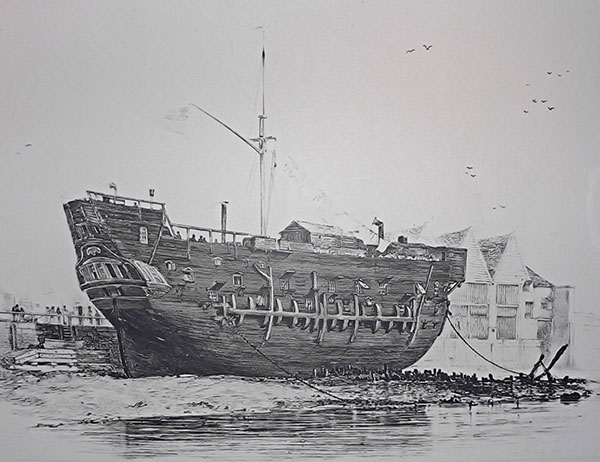Transportation records
Published in Features, Issue 2 (March/April 2017), Volume 25By Fiona Fitzsimons
After 1649 and continuing until 1853, many convicted felons from Ireland were transported overseas to serve their sentences as indentured servants. Initially transportation was to the thirteen colonies in North America, and to a lesser extent to the island colonies in the British Caribbean. By the early eighteenth century the Caribbean ‘sugar islands’ relied on slaves rather than felons for labour, and in 1717 Jamaica refused to take any more convicts.
Transportation continued from Ireland and Britain to North America but was suspended during the American Revolutionary War (1775–83), when thousands of American prisoners were transported in the opposite direction and were held in prison-hulks and the naval prison in Kinsale, Co. Cork. Between 1784 and 1790 Ireland uniquely resumed transportation of prisoners to the Americas. In 1785 the English privy council approved the establishment of a penal colony in Australia. The era of convict transportation to North America was over and transportation to Australia just beginning. In 1791 the first Irish prisoners transported to Australia arrived aboard the Third Fleet. Between 1791 and 1853, Irish courts sentenced over 26,500 prisoners to transportation. In 1867–8 the sentence was briefly revived for Fenian prisoners.

Above: The beached convict ship HMS Discovery at Deptford, London, c. 1820s—typical of convict hulks in Britain and Ireland where prisoners were held prior to transportation to Australia.
Before 1788 there are very few extant records for Irish prisoners transported to America. A rare survival is the list of ‘convicts and vagabonds’ deported in 1737–42, originally published in the Journals of the Irish House of Commons and now available on-line (http://www.dippam.ac.uk/ied/records/21435). The largest is the Irish-Australia Transportation collection, compiled from records of many government offices, held in the National Archives. In 1922 this collection was fire-damaged and has significant gaps. Prisoners’ Petitions survive from 1788, for example, whereas other key sources start later—the Free Settlers’ papers from 1828, and Convict Reference Files and Transportation Registers 1836–53.
Nonetheless, it is often possible to recover evidence from other records. Some Irish counties have good runs of court records—assizes and quarter sessions—covering a decade or more. Dublin City, for example, has a complete run of criminal trials from 1741 to 1752. It is possible to use court records to recover prisoners’ names, crimes, sentence and date. Unfortunately, the destruction of Irish court records is such that it will never be possible to recreate a comprehensive list of all prisoners transported from Ireland in the eighteenth century, as was done for England and Wales by archivist Peter Wilson Coldham in The complete book of emigrants in bondage 1614–1775 (Baltimore, 1988).
From 1790 there is a good survival of prison registers, which provide the prisoner’s name, age, marital status, trade/occupation, crime, remand date, trial date/place, sentence, and the date a convicted prisoner was returned to prison before being brought to the ship. This evidence will facilitate a focused search in newspapers. News coverage prior to 1775 offers little detail, sometimes no more than the number of prisoners convicted and sentenced at a specific assize. As a rule of thumb, after 1785 newspaper accounts include greater detail, and by around the 1820s it is often possible to piece together quite detailed accounts from local papers.
Fiona Fitzsimons is a director of Eneclann, a Trinity campus company, and of findmypast Ireland.
FURTHER READING
R. Lohan, ‘Sources in the National Archives for research into the transportation of Irish convicts to Australia’, Journal of the Irish Society for Archives (Spring 1996) (http://www.nationalarchives.ie/topics/transportation/Ireland_Australia_transportation.pdf).
















